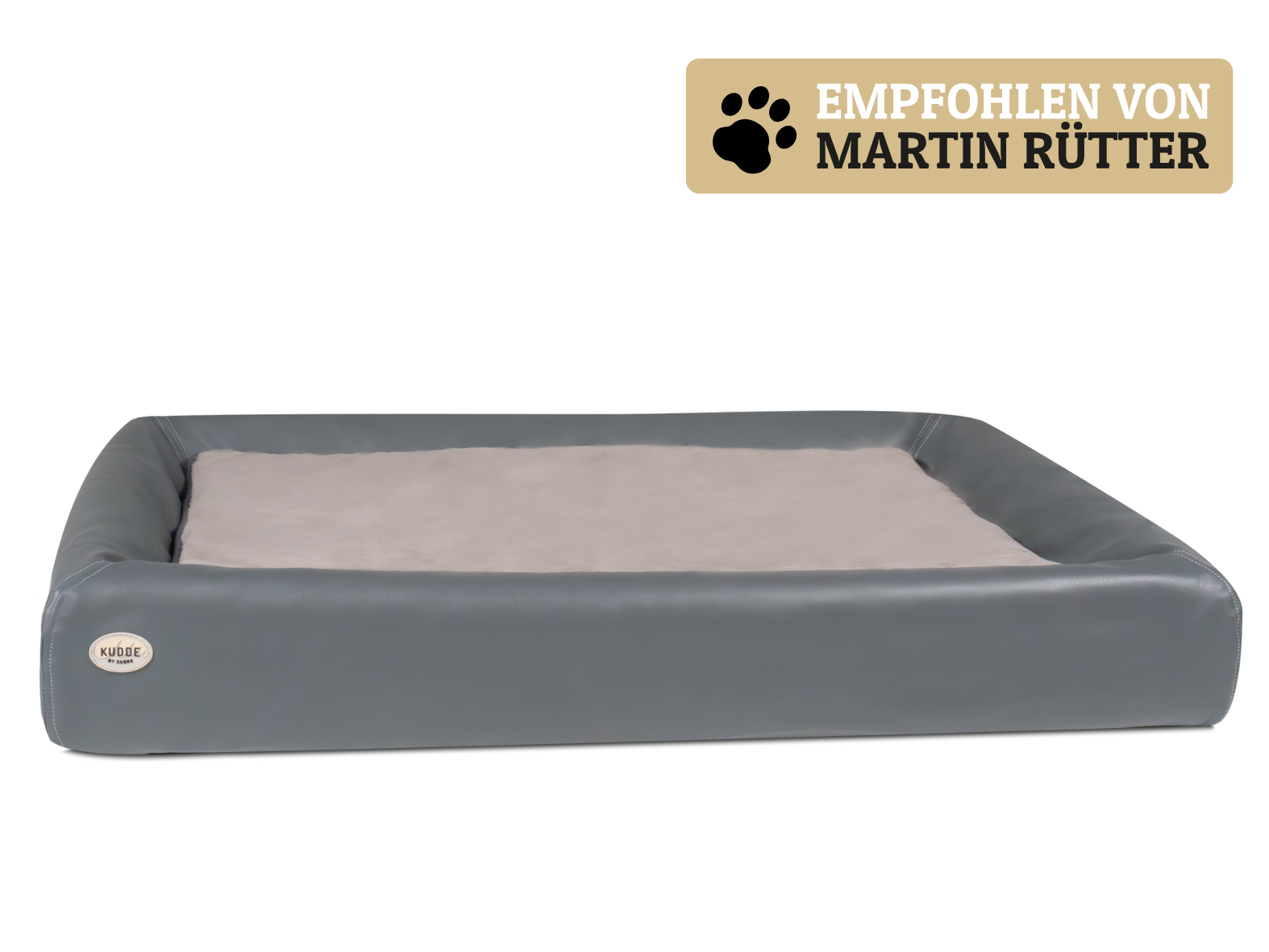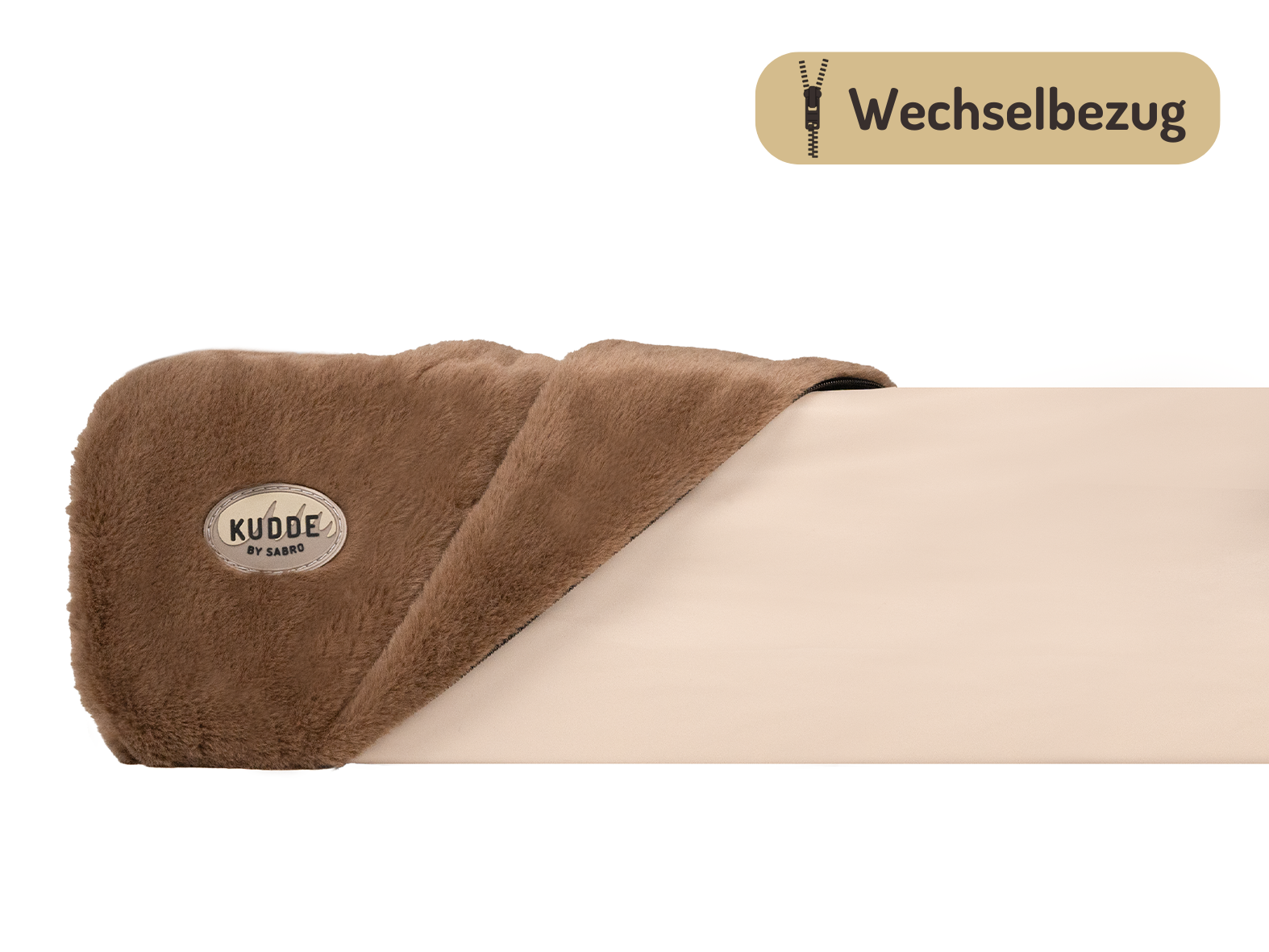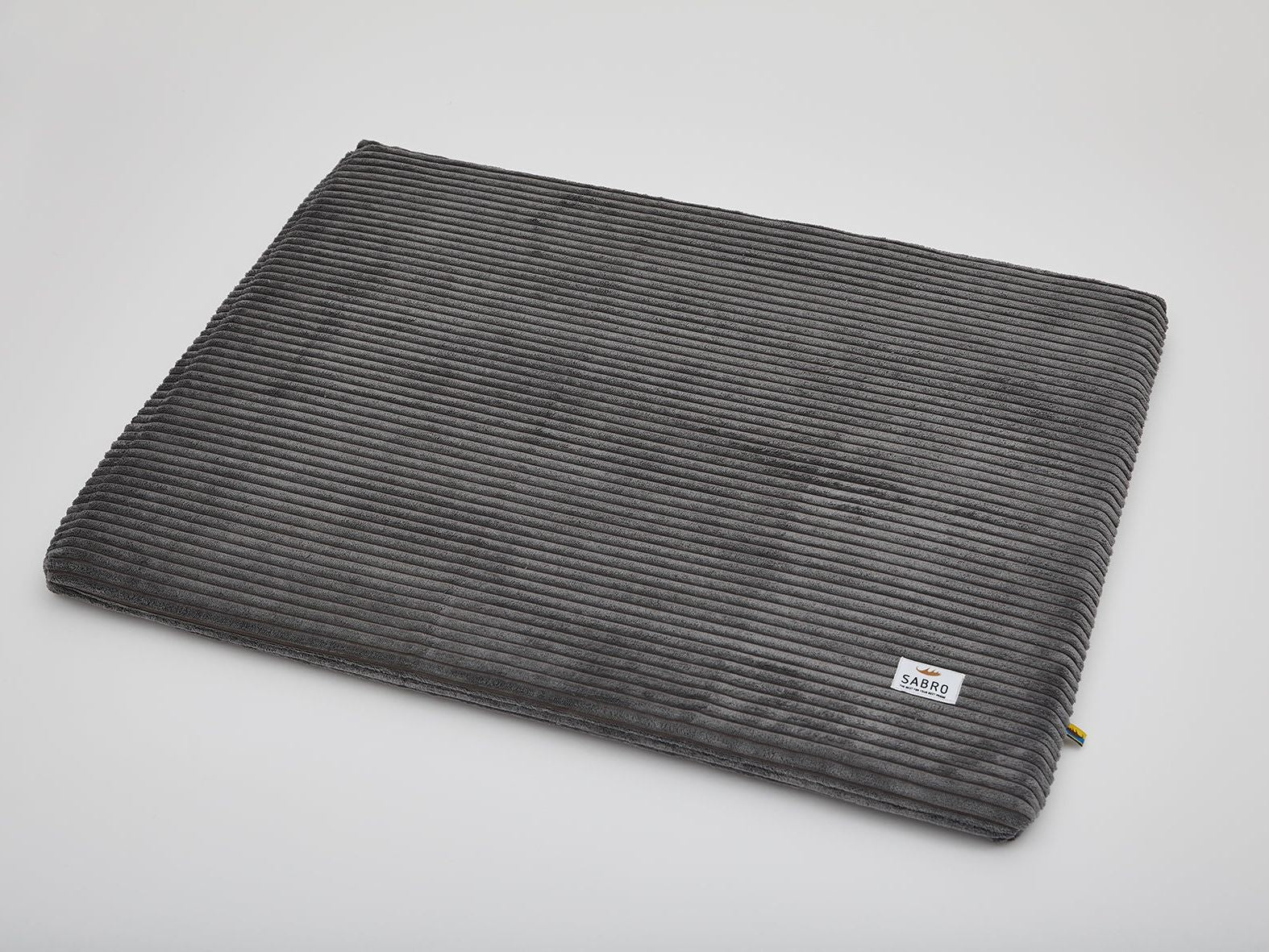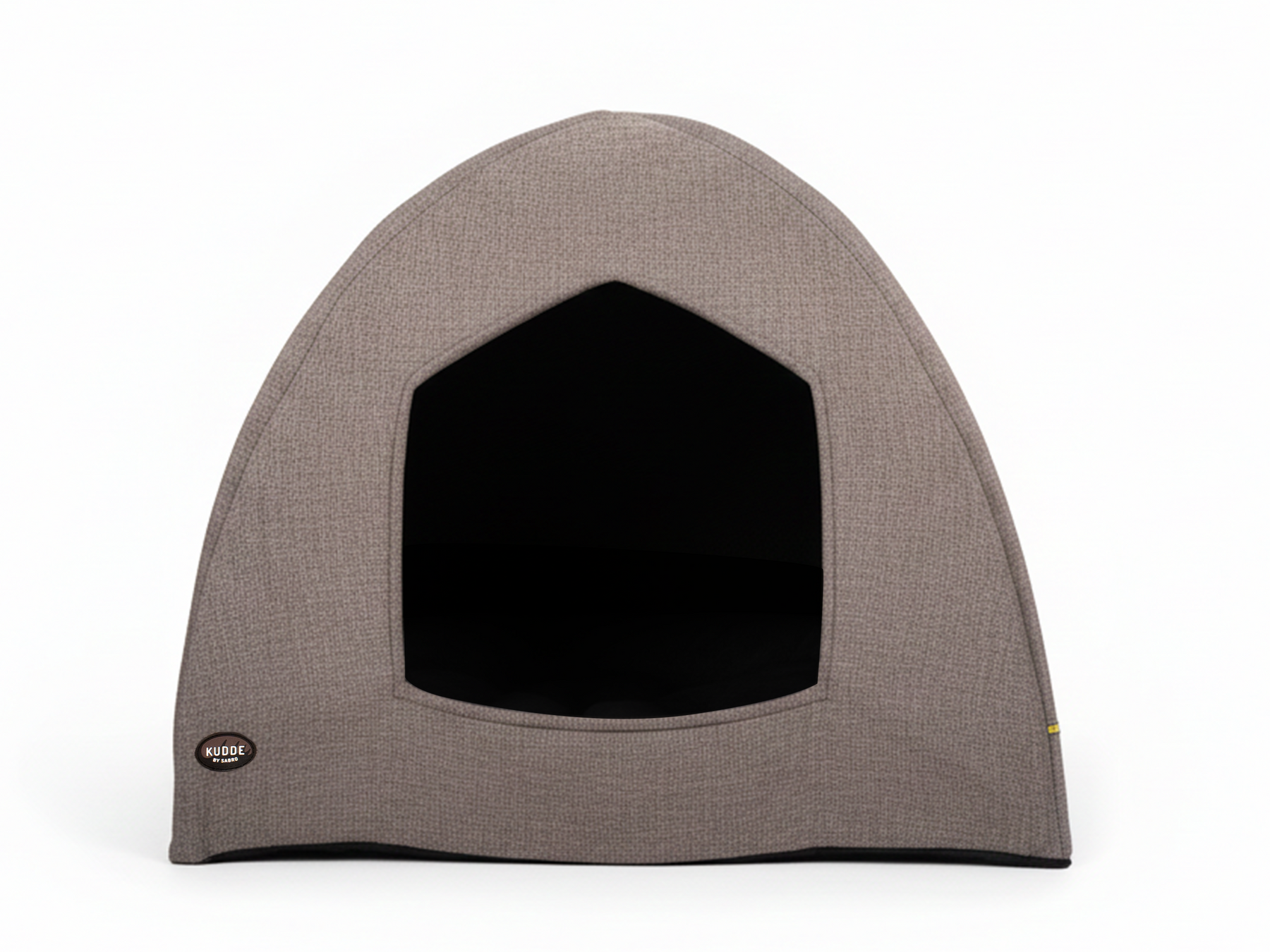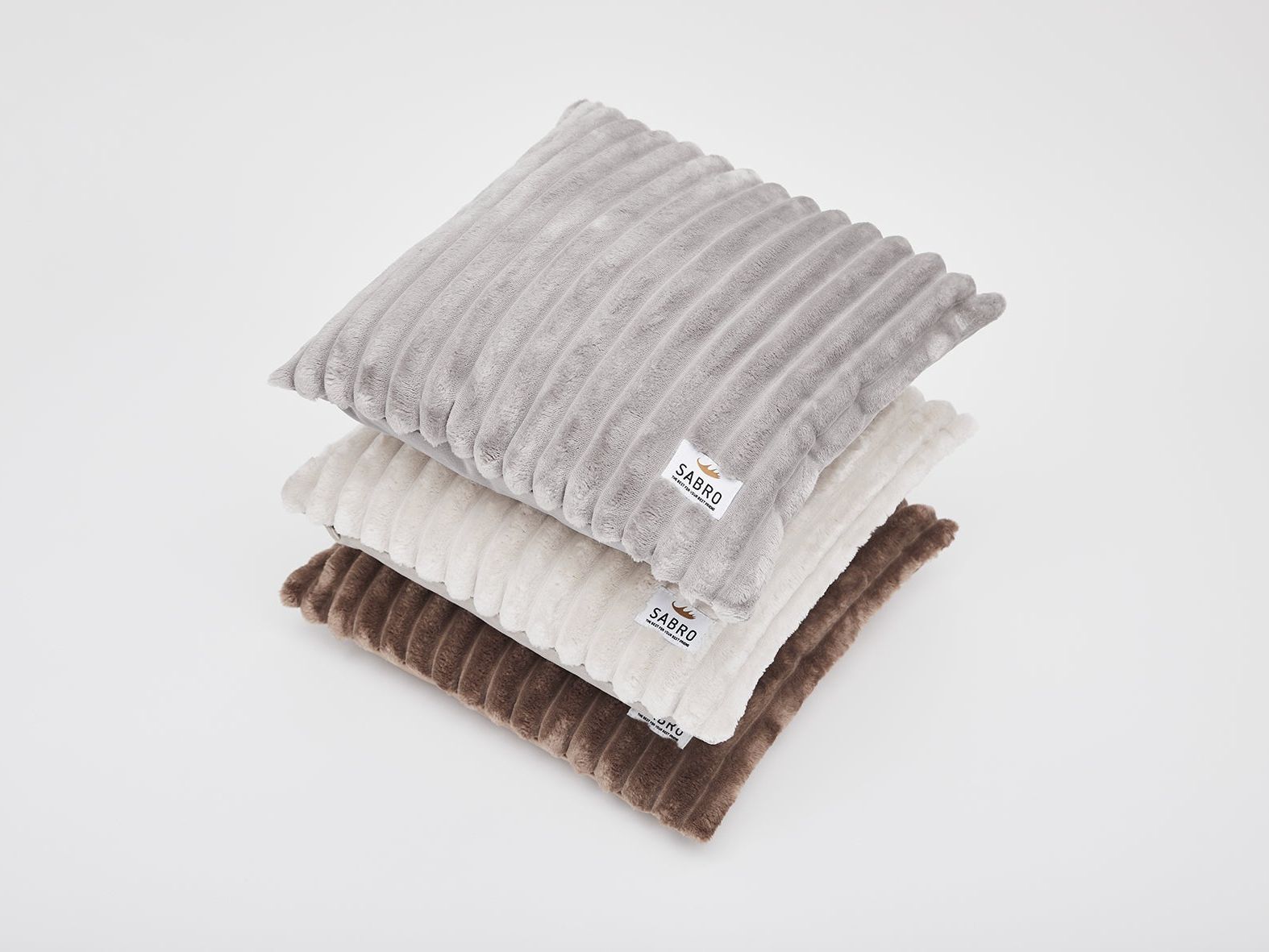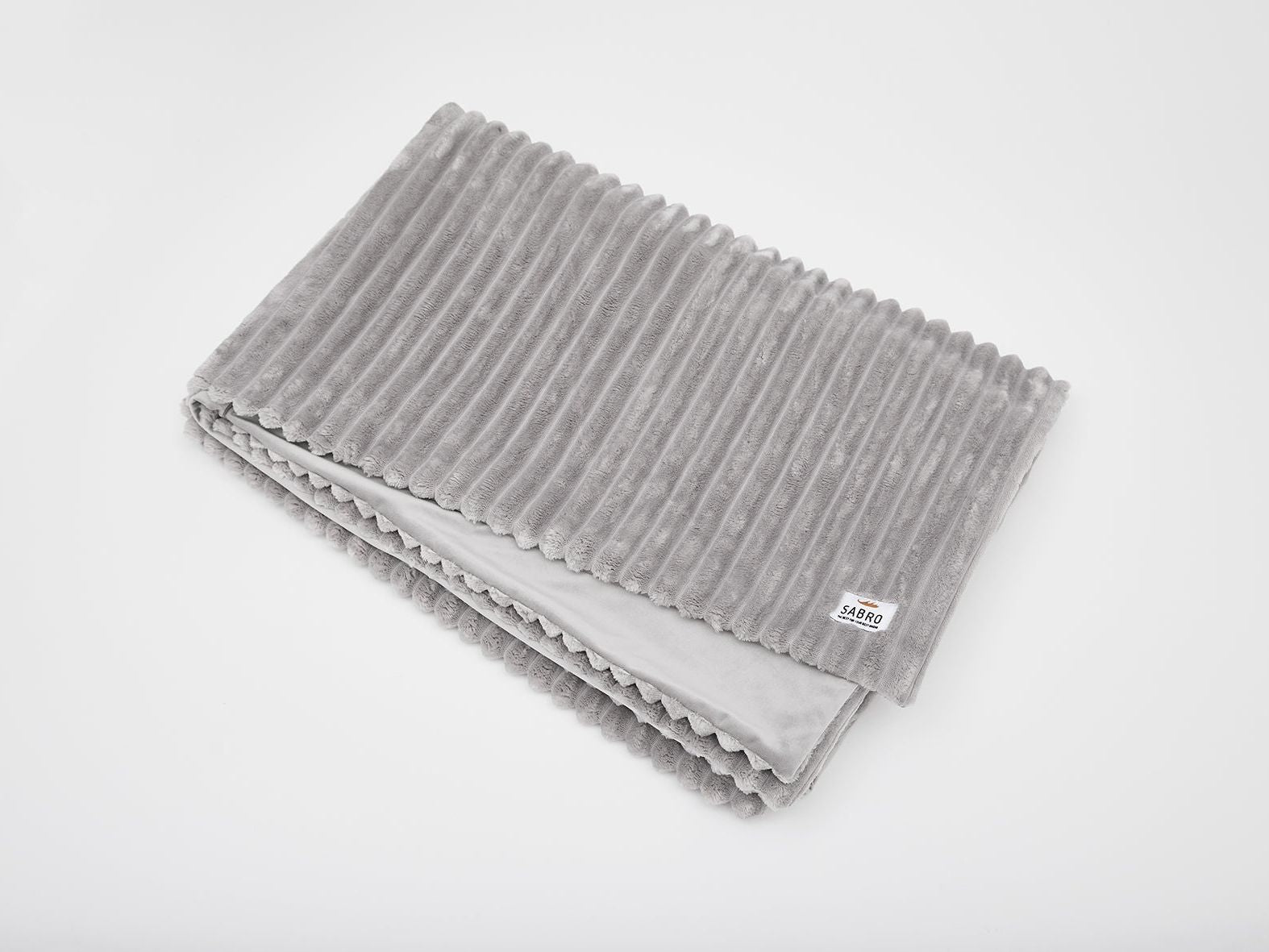Which dog breed suits me? Or: Does a dog suit me at all?
You've probably already noticed that dogs have been very much in vogue for several years now, with the Covid-19 pandemic in particular boosting many people's desire to have a pet from 2020 onwards. People are at home more, working from home suddenly makes it possible to look after a dog more optimally and also to get out during lockdown because of the need for walks and, as we now know, there are not too many other activities in pandemic cases. We can understand these thoughts all too well, because the SABRO team is also a team of passionate dog owners. But there could be a big difference. We are real dog people, with heart and soul as well as heart and snout.
That's why, in addition to things you absolutely need to know if you're thinking about getting a dog, we'd like to raise a few critical questions that you should honestly ask yourself before getting a dog if you're thinking about getting one of these faithful four-legged friends.
A dog means a lot of responsibility for several years
Depending on the breed and the associated expenses, a dog is a burden on your own quality time account, your wallet and restricts your own freedom (often for much longer than the children living in the house who really wanted the dog). You can't just go on a quick trip without knowing beforehand where the dog is staying (unless he can simply come with you, which would of course be best).
Are you wondering which dog or dog breed you should get? Please think a lot about your own life situation, your job, vacation wishes, appointments, sports clubs, etc. beforehand, because a dog demands your time, can't always come with you everywhere and can't stay at home alone for hours on end. Especially not as a cute puppy.
You should also think about vacations, which are often neglected in exceptional situations such as a pandemic: Air travel with a dog is hardly possible, especially not with a representative of a large dog breed. Other care provided by boarding kennels costs extra money every day of vacation and is generally a great burden for the dog, as he naturally prefers to stay with his pack.
The choice of vacation accommodation is also limited, as dogs are not allowed or welcome as guests everywhere, and hotels in particular often do not offer a solution for accommodating your dog. A vacation apartment or mobile home is a more obvious solution.
Once you have thought about all these things and decided that a dog should move in with you, the question now arises: which dog suits me or us, because the whole family should be involved and agree. The question is also: which dog breed suits me or us? Because even though dogs have their own characters and often don't fit the typical breed description, it's good to know how big the dog can get, how much care and exercise it needs and many other things. These can be assessed relatively well on the basis of the breed.
You should ask yourself these 3 questions before getting a dog:
How big should the dog be?
Bear in mind that a Great Dane weighing 70 kilos also needs a large dog bed, e.g. the XXL KUDDE is 150 x 117 cm, and the car must also be able to transport the dog safely. A small dog weighing up to 6 kg can fly with you on vacation, but it may lose its nerve in a busy household with lots of small children.
How active should my dog be?
Are you passionate about long walks and hikes? Are you still fit enough to go out in all weathers? Maybe even go jogging or cycling with your dog? Or would an older dog who likes to chill out with you and cuddle up on the sofa also be an option for you?
How demanding is coat care?
Many breeds need regular visits to the groomer and also need to be brushed at home. You should also take pleasure in this, because this grooming is really not only of an optical nature, but these dogs also suffer when, for example, the coat becomes matted or the hair grows into the eyes.
Remember: the breed you may have chosen is not always the one that suits your life situation.
What suits me better: puppy or adult dog, pedigree or mixed breed?
Whether breed or mixed breed, puppy or adult dog, animal shelter or breeder: the dog is a living being, not an article that can be returned "easily" if you don't like it. It will have its own character, which does not always adhere to the breed description, because a dog is sometimes just a person.
If you're moving in with a puppy, be aware that a baby is moving in. He will need a lot of time, in fact he is a full-time job. He has to learn to be house-trained. And he can't be left alone. You'll have to take him out often, even several times at night, and he may chew on things in the apartment. Getting him used to everything and teaching him the basics is a big, responsible task and this will continue even after puppyhood, or more precisely until the young dog phase.
There is also no guarantee that you will achieve a perfect end result with a puppy, which is partly down to us, because who is perfect? And a puppy also comes with its own character package, i.e. its genetics and disposition.
Would you prefer a dog from a breeder or a dog from a shelter?
An adult dog may well be the better choice, especially for new dogs. You can find these dogs at animal shelters, for example. And don't worry, it's not all "hard to train" dogs. There are also many dogs waiting at the shelter that are wonderfully socialized, walk well on a lead, can already stay on their own and are simply waiting for a second chance because their first human has fallen ill or died. There are also dogs who have been divorced, or whose owners have lost their job, their home or simply don't have the time because they haven't considered the points listed above.
If you choose a dog from a breeder, always check the following things:
Do not support torture breeding: some breeds no longer conform to animal welfare standards, because if the Chihuahua fits into a teacup but the eyes almost fall out of the head or the flat nose can hardly breathe, that is simply torture.
Don't support illegal puppy trading from the trunk of a car without seeing the parents, etc. You are not saving these dogs when you buy them, you are only encouraging the constant production of a "sad supply".
Will my dog be a city dog or a country dog?
The whole environment plays a major role in the decision to get a dog. Do you live alone in the countryside or in the middle of the city? In an apartment building, your dog should not bark all the time so as not to jeopardize the relationship with your neighbors, which may entail dog training and additional costs. If you live on the fourth floor, your dog should not have any walking restrictions. If you live in the middle of the city in a typical nightlife district, you should look for suitable areas to walk your dog beforehand. Some dogs also don't like too many people around them. Is the dog outside a lot in the countryside or indoors in the city? This should also have an impact on your decision.
There are about 360 incredibly great, different dog breeds and so this is really not an easy decision. If you add to that the many mixed breeds. We'll introduce you to a few breeds here:
- Breed portrait Dachshund, Rhodesian Ridgeback and Münsterländer
- Breed profile Russel Terrier, Weimaraner, Labrador Retriever
- Breed portrait Kangal Shepherd Dog
In these breed portraits, we deliberately avoid the "child-loving Labrador" and the "small Chihuahua for the city apartment". It's not possible to make such generalizations.
And as I said, if you're thinking about getting a dog during the lockdown to spend more time outdoors or have company at home, please bear in mind that every pandemic will be over at some point and suddenly air travel, concerts, theater visits and other, rather dog-unfriendly activities will take place again.
Test how your life would change with a dog before you get one!
If you have dog owners in your circle of friends, take the opportunity to get to know a dog. Take it for a walk or look after it during the vacation season if you feel up to it. Many animal shelters also offer so-called dog sponsorships, where you can walk the same animal regularly and get to know it. This is a good way to assess the demands of life with a dog. Even if a lot of things will probably turn out differently in real life than you think. But don't worry: it's usually pretty different.
Finally, you need to remember that you will need all the initial equipment as a new dog owner: a proper dog bed such as the KUDDE, food and water bowl, dog lead and collar, perhaps a special puppy harness, grooming accessories, high-quality dog food, toys and much more. A dog is a real purchase, also in the financial sense. The good news is that we not only offer you the perfect accessories for dogs, but also regular promotions and discounts.
Checklist before getting a dog:
- Think about whether you absolutely want to start from scratch with a puppy or whether an adult dog would also be an enrichment for you.
- Should the dog be sporty, fond of children, easy to care for or compact?
- Think about whether you want to get a dog from a breeder or give a dog from an animal shelter a new loving home.
- Ask yourself how temperamental the dog can be.
- Check your living environment, the size of your home and your region: is it suitable for a dog? Do small children live in the household?
- Calculate with average additional costs per month for food, dog tax, dog owner liability, equipment, doctor's visits etc. of around 75 euros per small dog up to 200 euros for a large dog.
- Think beforehand about how long your dog would be home alone while you are at work or similar, or whether the dog would be allowed to go to work with you.
- Ask yourself how much time you want to invest in the dog: large breeds usually need more exercise and time for walking.
- Evaluate your own fitness and age. Wouldn't a gray snout that's already older be a great option?
- Check your travel habits. Do you travel a lot? If so, can the dog accompany you? Or are you prepared to do without air travel?
How did you find the dog that is now with you? Share your experiences with us. We look forward to hearing your stories.


